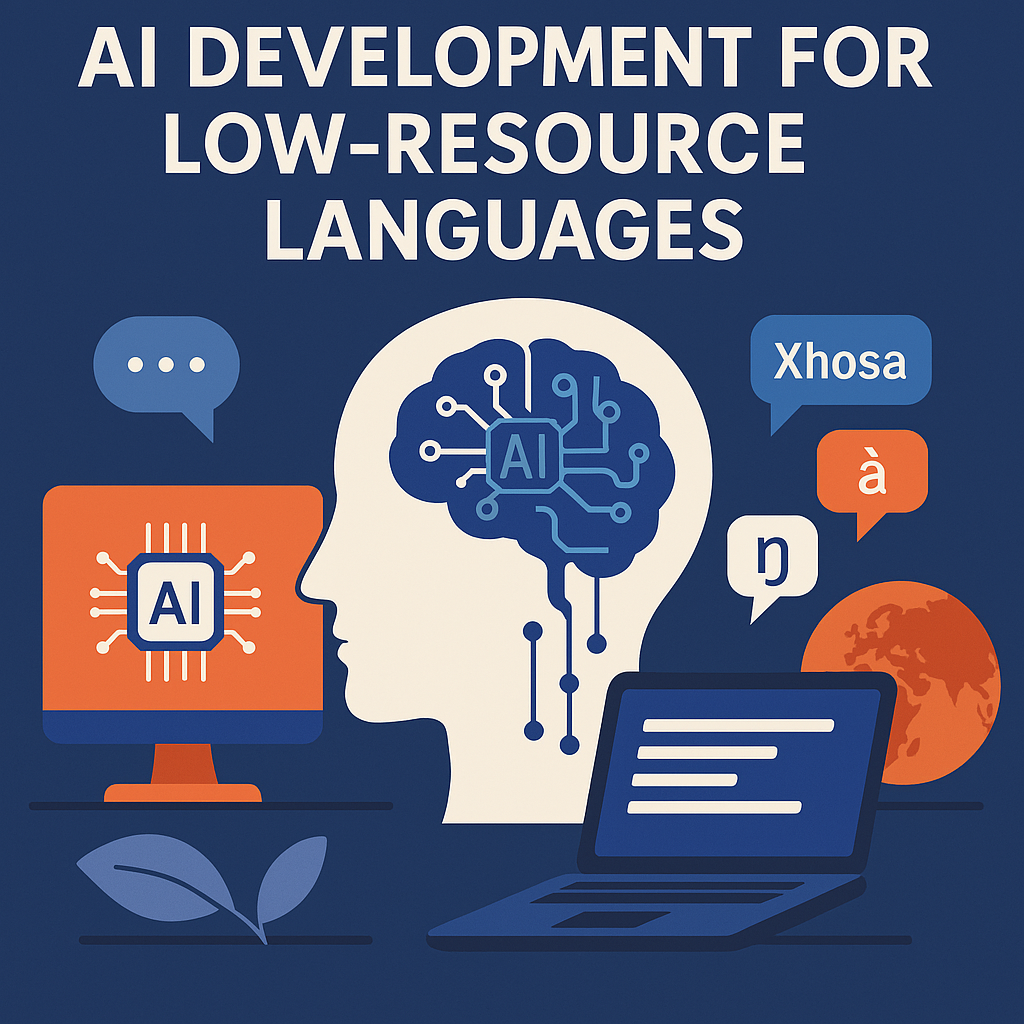South Africa Urges G20 to Support AI Development for Low-Resource Languages
Minister Malatsi highlighted the vast linguistic diversity of the world, noting that there are over 7,000 languages spoken globally.

- Country:
- South Africa
South Africa has called on the Group of Twenty (G20) nations to prioritize the development of Artificial Intelligence (AI) for low-resource languages and to collaborate in sharing data and tools to close the gap in linguistic diversity in digital technologies. The call was made by the country’s Minister of Communications and Digital Technologies, Solly Malatsi, during a session of the G20 Digital Economy Working Group Task Force on AI, held in Gqeberha.
Minister Malatsi highlighted the vast linguistic diversity of the world, noting that there are over 7,000 languages spoken globally. Despite this, most AI models and digital content are primarily built around a small subset of languages, most notably English and a few others. This imbalance, he stressed, leads to significant gaps in AI technology, which predominantly ignores a large portion of the global population, particularly those who speak less commonly represented languages.
Bridging the Linguistic Divide in AI
Malatsi pointed out that AI systems are only as effective as the data and algorithms upon which they are built, and currently, the data sets used for training AI models often fail to capture the linguistic and cultural richness of the world’s diverse population. This lack of inclusivity not only undermines the cultural heritage of various communities but also poses a practical barrier by threatening to exclude billions of people from participating in the digital economy powered by AI.
He warned that these linguistic and cultural deficits in AI systems could deepen existing inequalities and create new forms of exclusion. According to the Minister, addressing this issue goes beyond technology—it is a social concern that could potentially limit the benefits AI can offer in crucial sectors such as healthcare, education, agriculture, and governance.
The Social and Ethical Impact of AI
Minister Malatsi emphasized the importance of considering AI not just from a technological perspective but also from the standpoint of its social impact. He pointed to AI's potential to contribute to the achievement of the United Nations Sustainable Development Goals (SDGs), particularly in improving access to essential services in underserved regions. However, he also raised concerns about the ethical implications of AI, such as bias, transparency, and accountability.
AI systems have faced criticism in recent years for exhibiting biases, particularly in areas like hiring practices, law enforcement, and financial lending. Instances of racial and gender biases in AI algorithms have sparked widespread debate, with critics arguing that these biases are systemic and need to be addressed to prevent harm. Minister Malatsi urged G20 nations to work together to share best practices on AI governance, regulatory approaches, and standards to ensure AI remains ethical, trustworthy, and aligned with human rights principles.
South Africa’s G20 Presidency Focus on Inclusion and Equity
During the meeting, Minister Malatsi reiterated that South Africa’s G20 Presidency would focus on inclusion and equity at the heart of the digital agenda. He outlined four key pillars under the presidency’s digital agenda, which are:
-
Bridging the digital divide with meaningful connectivity.
-
Building inclusive digital public infrastructure.
-
Nurturing innovation ecosystems for local development.
-
Championing ethical AI that respects diverse languages, cultures, and values.
The Minister emphasized that digital inequality is a growing concern and that the world must unite to address it. He highlighted the need for collective action, both from governments and the private sector, to ensure that digital infrastructure is available to all, especially those in underserved regions. This would require significant investments in connectivity, innovations to reduce costs, and policies to make internet access affordable for the poorest populations.
Tackling the Digital Divide
The International Telecommunication Union (ITU) estimates that nearly 2.9 billion people still lack internet access, with many living within reach of mobile broadband networks but unable to connect due to factors such as high data costs, expensive devices, and limited digital skills. Minister Malatsi argued that merely building infrastructure is not enough. The real barriers to connectivity, he said, are economic, educational, and linguistic.
He stressed the socio-economic benefits of closing the digital divide, citing a report by the Global System for Mobile Communications Association (GSMA), which estimated that bringing the currently offline population onto the internet could add $3.5 trillion to the global economy by 2030. Notably, 90% of the benefits would flow to developing countries, underscoring the critical need for inclusive digital policies that cater to the global south.
Supporting Digital Entrepreneurship and Innovation
South Africa has also proposed that G20 members share strategies for supporting start-ups, micro, small, and medium enterprises (MSMEs). These strategies could range from providing startup financing, creating innovation hubs, simplifying regulatory processes, and offering mentorship opportunities. The Minister urged G20 members to focus on growing the digital innovation ecosystem within their countries and to support entrepreneurship in underserved regions.
One idea that has been discussed within the G20 is the creation of an innovation fund or facility to support digital entrepreneurship, particularly in developing nations. Minister Malatsi suggested that such a fund could play a key role in helping underserved regions access the resources they need to innovate and grow in the digital economy.
He concluded by emphasizing the need for a truly global digital economy where innovation is not bound by geographical or economic borders. Brilliant ideas from all corners of the world—whether in Africa, Asia, or Latin America—should have the opportunity to find the support and resources needed to flourish. He called on the G20 to commit to working together to ensure that innovation knows no borders and that the digital economy remains inclusive and equitable for all.
- READ MORE ON:
- Solly Malatsi
- G20
- Artificial Intelligence










